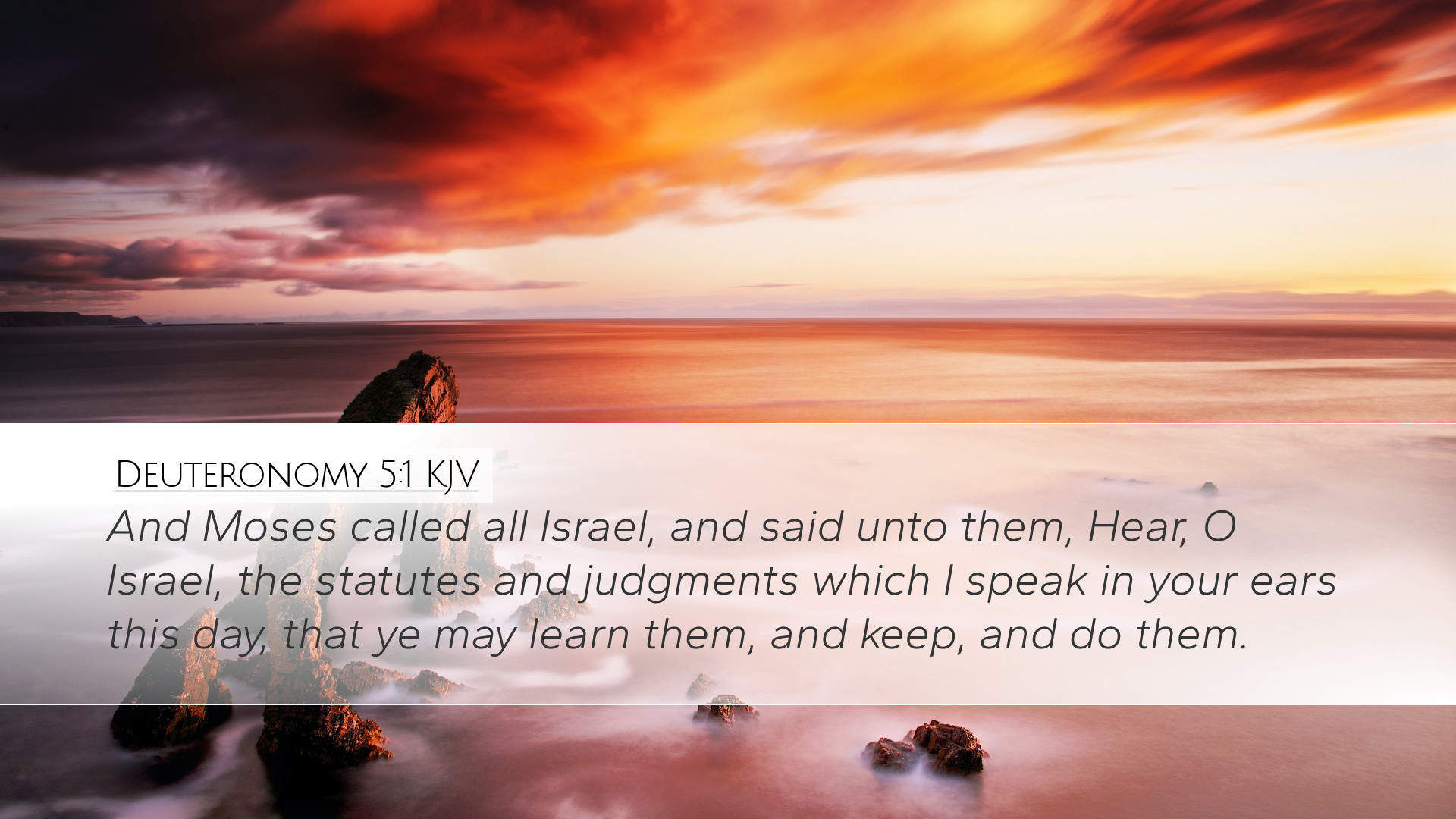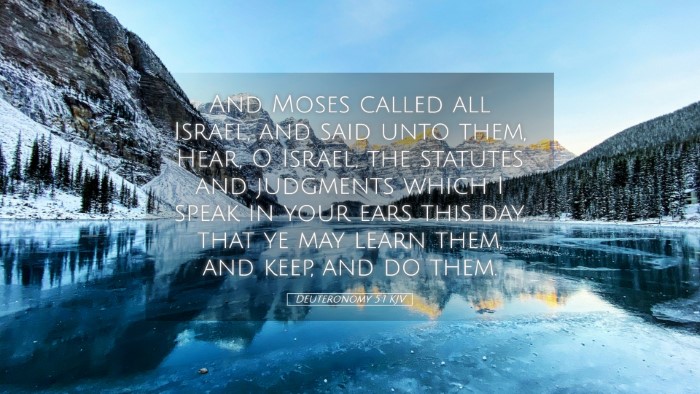Commentary on Deuteronomy 5:1
Deuteronomy 5:1 states: "And Moses called all Israel, and said unto them, Hear, O Israel, the statutes and judgments which I speak in your ears this day, that ye may learn them, and keep, and do them."
Context and Background
The Book of Deuteronomy serves as Moses’ farewell address to the children of Israel as they prepare to enter the Promised Land. This specific verse is significant as it introduces the reestablishment of the Law, emphasizing the need to heed God’s commandments. It acts as a bridge, connecting the past experiences of Israel with their future in Canaan.
Moses as a Leader
Moses, as a leader, assumes a critical role here. Matthew Henry points out that Moses summons the entire congregation to hear the statutes and judgments. His authority is underscored by this act of gathering all the people, reinforcing the importance of communal learning and adherence to divine commandments.
Call to Attention
The phrase "Hear, O Israel" resonates deeply in the Hebrew tradition. It is a call to pay careful attention, as Albert Barnes elucidates, highlighting that God’s word requires active listening and understanding. This call to attention precedes the commandments, signaling the vital nature of God's laws.
Statutes and Judgments
The terms 'statutes' and 'judgments' refer to the commands given by God that govern moral, ethical, and ceremonial laws. Adam Clarke notes that 'statutes' denote laws meant to be adhered to, and 'judgments' reflect God's decisions regarding justice and justice among His people. This duality is essential for a complete understanding of the divine law.
Objective of Learning
Moses emphasizes the vital purpose of listening: “that ye may learn them, and keep, and do them.” Matthew Henry highlights that the commandments need to be understood and practiced, underscoring that mere hearing is insufficient. This notion positions obedience as a response to learning.
- Learning: Engaging with God's commands intellectually.
- Keeping: Internalizing and valuing those commands in one’s life.
- Doing: Acting upon the commands to reflect one’s commitment to God.
Theological Implications
This verse has notable theological implications regarding the character of God and His relationship with His people. Albert Barnes stresses that it demonstrates God’s desire for His people to know Him intimately through His commands, fostering a reciprocal relationship between God and Israel.
Application for Today
For modern believers, the charge to "hear" remains relevant. Adam Clarke encourages the faithful to approach Scripture with intentionality and reverence, reflecting on how each command applies to contemporary life. The enduring nature of Mosaic Law invites reflection on how these principles can govern our ethical and moral lives today.
Conclusion
Deuteronomy 5:1 encapsulates a profound moment in Israel's history, representing a pivotal transition and the establishment of a covenant community defined by God's Law. The combined insights of Matthew Henry, Albert Barnes, and Adam Clarke provide a rich understanding of the implications not only for the people of Israel but also for today’s church. As believers, the responsibility to learn, keep, and do God's commandments is paramount in living out our faith.


